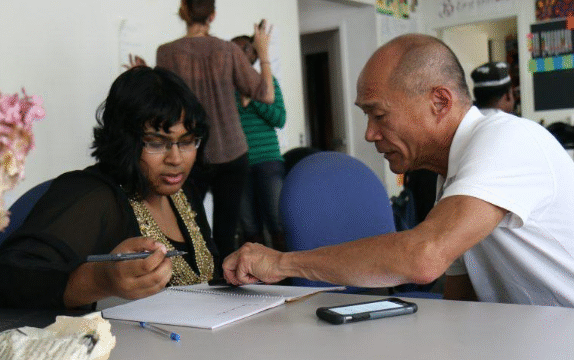Education is often described as the key to opportunity,
but the ability to learn does not happen in isolation.
Behind every classroom lesson and study session lies
a more fundamental requirement: proper nutrition. When children and adults receive balanced meals, their brains and bodies have the energy needed to engage with learning. Conversely, poor nutrition can create barriers that affect attention, memory, and overall academic achievement. Understanding the link between nutrition and education can help communities, families, and policymakers make better decisions that benefit learners of all ages.
Nutrition plays a foundational role in cognitive development. From the earliest stages of life, the brain requires a steady supply of nutrients to grow and function effectively. Vitamins, minerals, protein, and healthy fats support processes that shape memory, reasoning, and problem-solving skills. For example, iron deficiency has been linked to reduced attention span and slower cognitive processing. Similarly, a lack of essential fatty acids can hinder brain cell communication. When students arrive at school nourished, they are better prepared to absorb lessons, participate in discussions, and retain information.
The impact of nutrition is particularly visible in early childhood education. During the first years of life, the brain develops at a remarkable pace, forming connections that will influence learning capacity for years to come. Adequate nutrition during this period is vital. Children who receive a diet rich in fruits, vegetables, whole grains, and protein often show improved readiness for school. They can focus longer, interact more positively with peers, and approach learning with curiosity rather than fatigue. On the other hand, children who experience malnutrition may face delays in language development and struggle to keep up academically.
Beyond early childhood, nutrition continues to shape educational outcomes. In primary and secondary school, students rely on energy from food to stay engaged throughout the day. Skipping breakfast, for instance, has been linked to lower test scores and reduced concentration. A balanced morning meal, even something as simple as whole grain toast with fruit, can dramatically improve alertness and participation in class. Lunch and snacks also play a role in maintaining steady energy levels. When students consume meals high in sugar or processed foods, they may experience quick bursts of energy followed by fatigue, making it harder to focus during lessons.
The relationship between nutrition and education extends into higher learning as well. University students often juggle demanding schedules that include classes, work, and study sessions late into the night. Without mindful eating habits, they may experience stress, poor sleep, and difficulty managing their workload. Nutritious meals help sustain energy and concentration, while also supporting mental health. For young adults stepping into professional or academic careers, learning how to fuel the body with balanced foods can be just as important as study techniques.
Nutrition also influences classroom behavior, which in turn impacts learning for everyone. Teachers often observe that well-nourished students are more attentive, cooperative, and eager to participate. In contrast, hunger can lead to irritability, restlessness, or withdrawal. These behavioral changes not only affect individual students but can also disrupt the overall classroom environment. By ensuring access to nutritious meals, schools create conditions where teaching and learning flow more smoothly, benefiting both educators and students.
Programs that provide meals in schools highlight how critical nutrition is for learning. Across many countries, initiatives such as school lunch programs or community-supported feeding projects have shown measurable improvements in attendance and performance. Students who receive regular meals at school are more likely to attend classes consistently, stay motivated, and perform better on exams. These programs also help reduce inequalities by ensuring that children from low-income families have the same opportunity to succeed as their peers.
Nutrition does not only affect academic skills but also long-term life outcomes. Education and health are deeply interconnected. Students who struggle with poor nutrition may face challenges that extend beyond the classroom, limiting their future opportunities. Conversely, those who learn in environments that prioritize balanced meals are more likely to build healthy eating habits that last into adulthood. This creates a cycle where good nutrition supports education, and education in turn fosters knowledge about healthy living, leading to stronger communities overall.
Parents and caregivers play a central role in shaping how nutrition supports education. Providing balanced meals at home sets the foundation for learning. Encouraging children to enjoy a variety of foods, limiting overly processed items, and promoting hydration are all simple but effective strategies. When families prioritize nutritious eating, they send the message that health and learning go hand in hand. Schools can complement these efforts by offering lessons on nutrition, teaching students not just what to eat but why it matters for their growth and education.
Community involvement also strengthens the connection between nutrition and education. Local organizations, businesses, and governments can support programs that improve access to affordable, healthy food. Initiatives such as community gardens, nutrition workshops, and food assistance programs can empower families and learners. When entire communities understand the importance of nutrition for education, they can create environments where students are set up for success both in school and in life.
The global dimension of nutrition and education is also worth considering. In many regions, lack of access to food remains a barrier to learning. International efforts to provide school meals and improve agricultural practices show that nutrition is not just a local issue but a worldwide priority. By working together, countries can address the challenges of hunger and malnutrition, ensuring that children everywhere have the opportunity to thrive academically. Education for all cannot be fully achieved without addressing the nutritional needs that underpin learning.
In today’s world, where technology and innovation drive progress, the role of nutrition in education is sometimes overlooked. Yet no digital tool or teaching strategy can replace the basic requirement of a nourished mind and body. Balanced meals remain one of the most effective and practical ways to improve learning outcomes. Recognizing this connection allows educators, families, and policymakers to design solutions that create healthier, more successful learners.
In conclusion, nutrition is not merely about eating well—it is about learning well. A healthy diet fuels concentration, supports memory, and builds the energy needed for academic growth. From early childhood through higher education, the evidence is clear: proper nutrition lays the foundation for successful learning. By working together to ensure that everyone has access to nutritious meals, we can make education more inclusive, effective, and transformative. When nutrition and education are combined, communities move closer to a future where every learner has the chance to reach their full potential.






